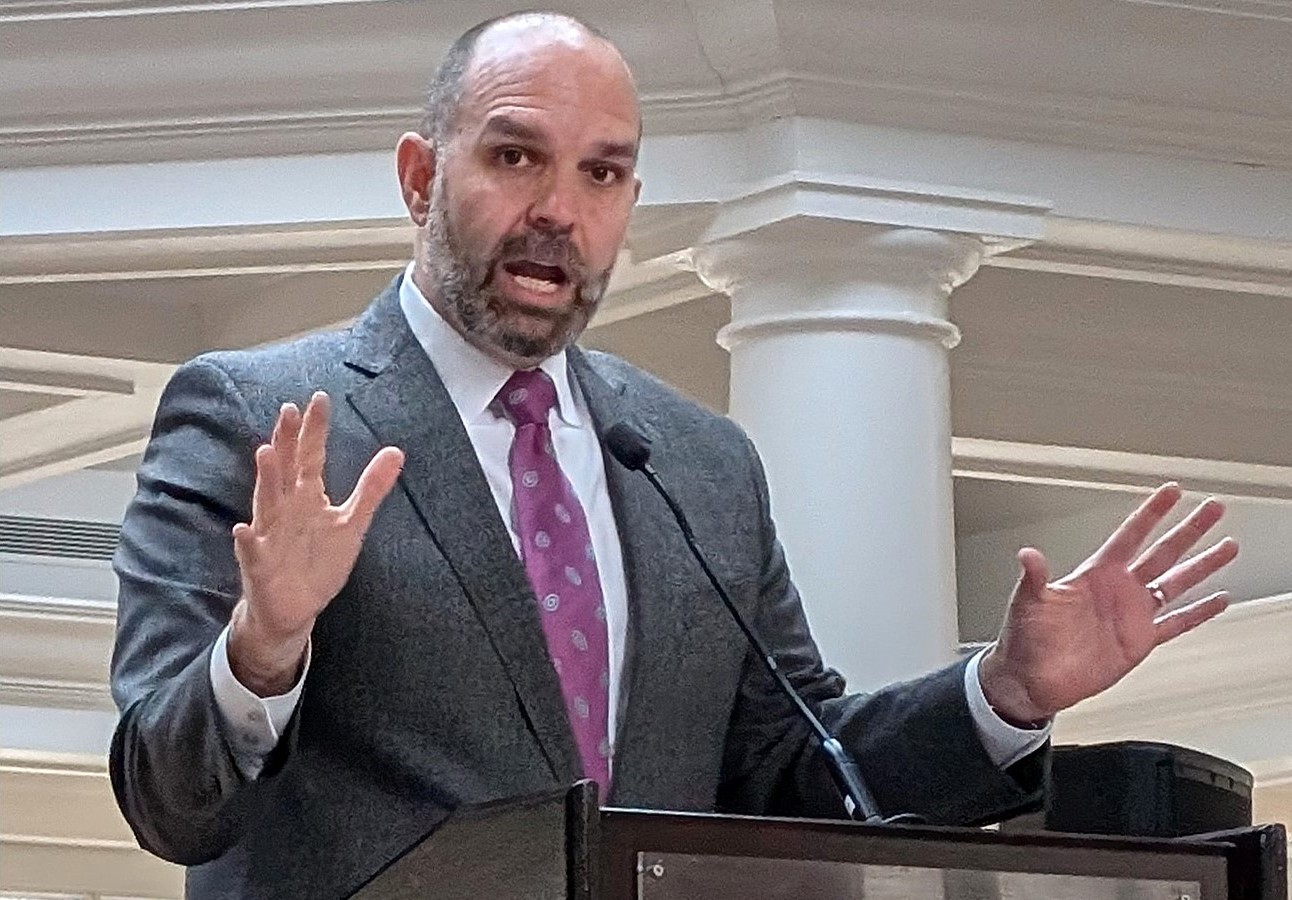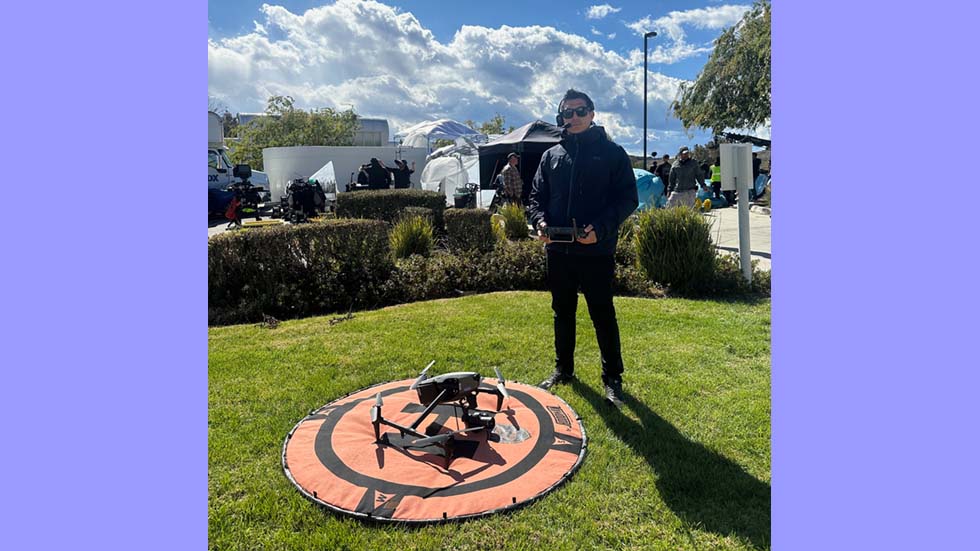NAB's Curtis LeGeyt Calls for Modernization of Broadcast Ownership Rules
In a speech to the 2025 Communications Forum, he worried that “this is a challenging time to be a broadcast journalist” and the challenges will get worse without regulatory changes

WASHINGTON—National Association of Broadcasters (NAB) President and CEO Curtis LeGeyt opened The Media Institute’s 2025 Communications Forum series with a speech highlighting the urgent need to modernize the Federal Communications Commission’s (FCC) outdated broadcast ownership rules. He also warned that the future of local broadcasting is at risk due to decades-old regulatory restrictions that prevent stations from competing on a level playing field with Big Tech.
In the speech, he addressed what he called “the elephant in the room here” by stressing that “this is a challenging time to be a broadcast journalist. It’s not easy to report on the deluge of information (and misinformation on social media) that is shaping our world. Especially in cutting through polarized rhetoric to find the truth. And yet, there has never been a more critical time to arm Americans with the facts and let them make their own decisions.”
“Efforts to limit the ability of broadcasters to report the facts hinders the public’s right to know and chills free speech,” he noted. “Americans deserve the full and fair reporting that broadcasters provide and NAB strongly defends our members' First Amendment rights and their vital role in maintaining an informed public. Our democracy relies on journalists’ ability to report the news without the risk of government retribution. In a media environment flooded with social media misinformation and cable news politicization, this role has never been more important.”
To allow local broadcasters to continue the important role they have played in providing crucial information during events like the L.A. wildfires, LeGeyt focused on the urgent need to deregulate antiquated ownership rules.
“While I feel fortunate to wake up each day knowing the work of our members is a fundamental bedrock of American democracy, at the same time I am worried,” he said. “The government’s failure to adapt its regulations to a changing media landscape has pushed local broadcasting to a precipice; one that looks eerily familiar to the neglect that led to newspapers’ demise.”
“The alarm is so significant that last year, then FCC Commissioner and now Chairman Brendan Carr implored his colleagues and Congress to act because, in his words, broadcasters are at a “break glass moment.’” he continued. “Chairman Carr was signaling that if we don’t act quickly, the future of local broadcasting is at great risk, and I agree.”
“For years, the FCC has treated TV and radio broadcasting as though it exists in isolation, ignoring the rise of cable, satellite, streaming and social media platforms that dominate today’s media consumption,” he said. “These new competitors are not bound by the same public interest obligations as local stations, nor do they face the same regulatory burdens. And so, while broadcasters are restrained by regulations, Big Tech continues to get bigger, dominating the media landscape and consumers’ attention. They extract advertising revenue from local communities, only to concentrate that wealth in Silicon Valley, all while operating free from the ownership restrictions placed on local broadcast stations.”
Get the TV Tech Newsletter
The professional video industry's #1 source for news, trends and product and tech information. Sign up below.
The result, LeGeyt said is a “playing field that is anything but level. While streaming services like Netflix, YouTube and Spotify reach all Americans, broadcasters are held back by complex ownership regulations that don't give stations a fighting chance. And meanwhile tech platforms like Google and Facebook offer businesses an advertising proposition that is unlimited in its scale either locally, nationally, or globally. An offering that broadcasters simply cannot match because the government won’t allow us to. Times have changed...drastically. And these regulations…broad, strict regulations that were imposed before the internet even existed…must also change to keep up with the times.”
To that end, LeGeyt once again called on the FCC to eliminate the ownership cap of a single station group reaching 39% of American homes and to abolish rules that “largely prevent TV broadcasters from owning two of the top four-rated broadcast stations in a media market. Not two of the top four most watched video services in a market, just broadcast stations. This ignores the vast array of competition broadcasters now face, from streaming platforms to social media giants. And most importantly the fact that in many markets, communities would be best served by a pool of investment in one or two strong local newsrooms, rather than four under-resourced entities…Eliminating these regulations will allow local stations to aggregate resources, invest in journalism and strengthen their service to communities.”
During his prepared remarks LeGeyt made no mention of NextGen TV or the regulations that may be holding it back.
But he did note that without regulatory changes to allow a more level playing field, “access to freely-available live sports is at risk…Football continues to clinch 93 of the top 100 most-watched broadcast programs each week, but because of their massive size, Big Tech companies like Amazon and Netflix are increasingly able to pay huge amounts to peel big games away from broadcast and air them exclusively on their streaming platforms. This takes games off local TV stations that air them for free to the masses. Without changes to the rules to give broadcasters the scale to more fairly compete for these rights, sports fans may soon need even more streaming subscriptions to watch their favorite teams.”
“The recent wildfires in Southern California reinforced the indispensable role of broadcasters,” he concluded “As fire spread rapidly through neighborhoods, local stations in the area provided wall-to-wall coverage, with viewership and listenership doubling and even tripling as people turned to the trusted voices they rely on during crises. Allowing broadcasters to compete will give local stations the ability to invest in our journalists, our highly valued content, our weather technology and our newsrooms.”
George Winslow is the senior content producer for TV Tech. He has written about the television, media and technology industries for nearly 30 years for such publications as Broadcasting & Cable, Multichannel News and TV Tech. Over the years, he has edited a number of magazines, including Multichannel News International and World Screen, and moderated panels at such major industry events as NAB and MIP TV. He has published two books and dozens of encyclopedia articles on such subjects as the media, New York City history and economics.

